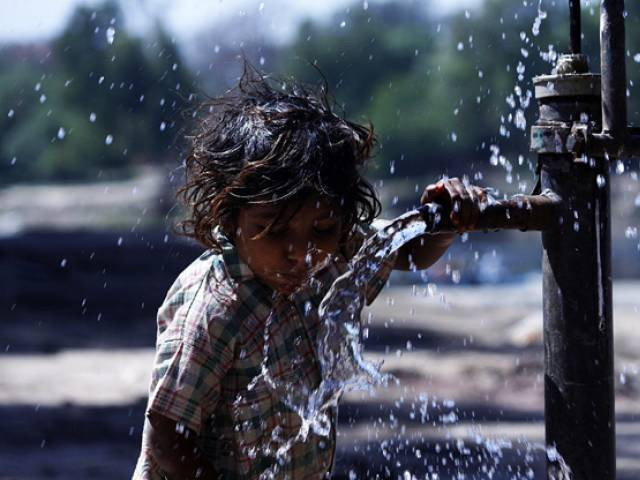Bids invited for Ghazi-Barotha water supply project
Shortlisted firms to be asked to prepare feasibility, design and project concept reports

PHOTO: FILE
Following the submission of bids, the government will shortlist companies for devising the feasibility report, design and project concept-I (PC-I) of the project and hand out the contracts by January 13, said officials.
The shortlisted companies will have three months to complete all technical formalities after which the final contract to build the project will be awarded. The contract is expected to be awarded before the end of the fiscal year in May. Moreover, it is expected that Prime Minister Imran Khan will perform the stone laying and groundbreaking ceremonies.
Requesting anonymity because they were not authorised to talk to the media, the officials said that a previous feasibility report for the project did exist but it had been prepared 10 years ago. That report too had been rejected. Moreover, the project cost has also ballooned to Rs90 billion during this time.
The project had originally been conceived in 2006, when former dictator General (retired) Pervez Musharraf was still at the helm. At the time, the project was estimated to cost around Rs17 billion and work on the project was scheduled to commence in March 2009. It would have taken five years to complete the project.
Even though noises were made during the tenure of the previous Pakistan Muslim League-Nawaz (PML-N) government to revive the project, it could not see the light of day.
The incumbent Pakistan Tehreek-i-Insaf (PTI) government, though, revived the project to provide water to the twin cities of Islamabad and Rawalpindi and its surrounding areas from the Ghazi-Barotha Dam.
The cost of the project will be shared by the Punjab, federal governments and the Rawalpindi Development Authority (RDA) while the Capital Development Authority (CDA) will oversee the project.
Sources further said that the World Bank too has agreed to provide a loan for building the project whereas several private firms have expressed their interest in joining the project in a public-private partnership.
The Ghazi-Barotha water supply project is essentially spread over three phases. In the first phase, the twin cities will be provided with 200 million gallons of water per day (MGD) by laying a 60-kilometre-long, 80 inch-wide pipeline from the Tarbela Dam at Ghazi-Barotha to a water treatment plant at Sangjiani in Islamabad.
In the second phase, an additional 200 MGD will be provided while in the third phase, 255 MGD will be received.
Under the project, Indus River System Authority (IRSA) has also approved to spare water for the twin cities from Punjab’s quota.
Should work on the project commence this year, it is expected to be completed in three years by 2022. After its completion, there will be a complete ban on the installation of tube-wells in twin cities, officials said.
Leh Expressway further delayed
Meanwhile, the Nullah Leh Expressway project has been put on the back burner until the end of the current fiscal year.
The delay could push up the project cost by another Rs500 million, officials told The Express Tribune.
Meanwhile, authorities managing the project have placed a complete ban on any sort of encroachments surrounding the entire site proposed for the expressway.
On the directives of the Punjab government, the Rawalpindi Development Authority (RDA) had expedited the process to launch the multi-billion Leh Expressway and Flood Channel project.
Subsequently, National Engineering Services Pakistan (NESPAK) had won the contract to devise the detailed design and technical advisory services for financial, legal and technical reports pf the Nullah Leh Expressway project.
NESKPAK will complete the Rs47 million contract in collaboration with two other companies.
The RDA will be the executing agency of the project which will be constructed on a Build-Operate-Transfer (BOT) basis.
The 23-km-long expressway from Soan River Bridge to the Kashmir Highway is planned to create an alternative traffic route between the twin cities of Islamabad and Rawalpindi. Besides eliminating environmental pollution caused by open sewerage in Nullah Leh, the expressway will help create economic activity along its sides as well.
According to the initial plan, the signal-free expressway would be constructed on both sides of the Leh Nullah from Rawalpindi to Islamabad.
Published in The Express Tribune, January 2nd, 2020.












1724319076-0/Untitled-design-(5)1724319076-0-208x130.webp)






COMMENTS
Comments are moderated and generally will be posted if they are on-topic and not abusive.
For more information, please see our Comments FAQ